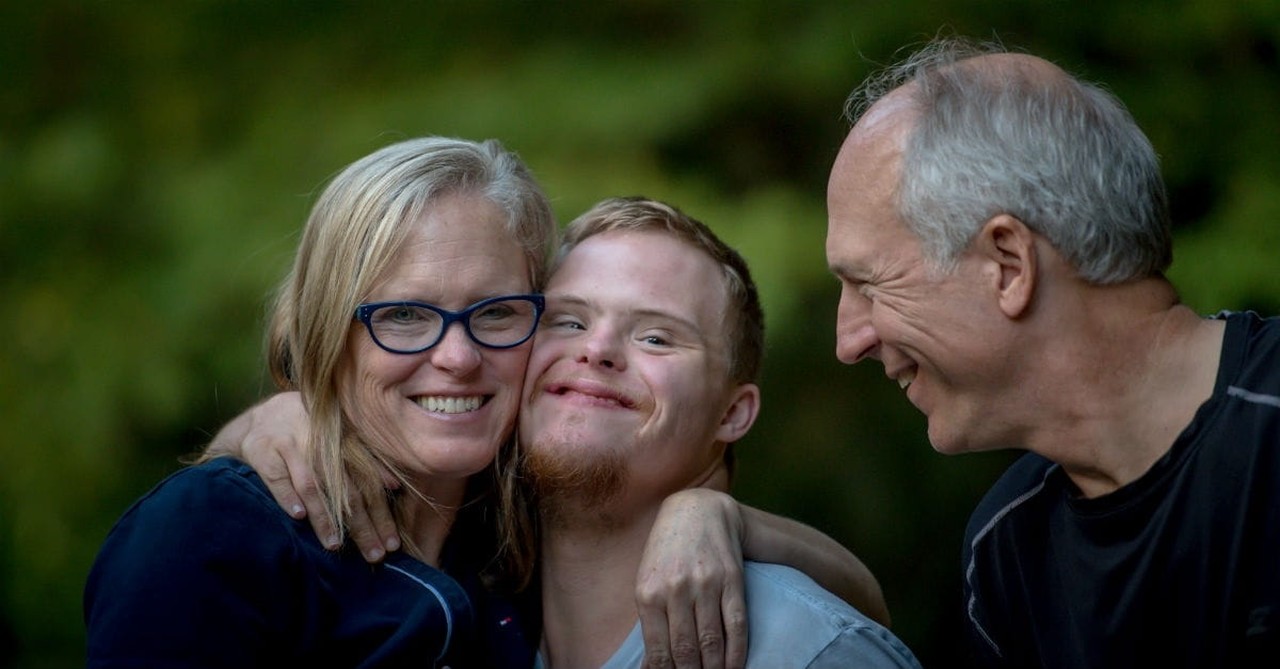
Although my husband encourages people to talk, clap and react to him while he is preaching, most Sunday sermons are met with silence. However, one Sunday when my husband got to a crucial point in his message, a barrage of crying from an autistic child filled the room because was overwhelmed by the crowd and the loud sound coming from the speaker. A couple of heads turned when they heard the commotion, but then when they realized what was happening, they immediately turned back around and my husband wasn’t thrown off by the distraction at all. This is because they knew who was crying. They didn’t just expect it; they accepted it.
The church body is made up of many types of people, including those with special needs. Autism, ADHD and Down’s syndrome are just some of the challenges a church may face. But it doesn’t have to remain challenging. In the last church I attended, we had kids with autism, ADHD, and Down’s Syndrome present in the church service. Here are some ways the church can be a safe haven for those with special needs, both in the service and in the Sunday School classroom.
Photo Credit: Pexels/Sharon McCutcheon
1. Be a House of Hospitality

1. Be a House of Hospitality
SLIDE 1 OF 10
Hospitality isn’t something you do, it’s something you are. Allow your church to exude hospitality. Rather than simplify it to merely having people over for dinner (although that is a great way to get to know people) allow it to be your overall attitude. People with the gift of hospitality put others first and go out of their way to make other people feel welcome. The church should be the same way.
Photo Credit: Unsplash
2. Sacrifice Perfection

2. Sacrifice Perfection
SLIDE 2 OF 10
So often, leaders focus on the flow of the service. Even the slightest hiccup within a service can be perceived as a failure. And kids with special needs can present a whole host of hiccups. Embrace them rather than fear them. Shirk the idea that a church service can be perfect. After all, it is comprised of imperfect people. If everyone embraces the idea to be who they are and not a fake version of themselves, the church environment will be more beneficial. People will enjoy an authentic worship environment where they can be free to be themselves not only with everyone else, but also with Jesus.
Photo Credit: Unsplash/Averie Woodard
3. Value children

3. Value children
SLIDE 3 OF 10
One look at a church sanctuary can let newcomers know what you value. Where is the kids’ ministry? Is it prominently positioned in plain sight or hidden away in a room off to the side? Are there signs to let people know where to find various programs? If not, post banners featuring special needs kids. This demonstrates special needs kids are not only welcomed but valued. Churches grow in the areas in which they value. If special needs kids are valued, it won’t take long before a new visitor figures that out and feels their family is accepted into the church family.
Photo Credit: Thinkstock
4. Choose Love

4. Choose Love
SLIDE 4 OF 10
A family with an autistic child shared this story with me.
Early on before their daughter’s autism was officially diagnosed, their daughter was being disruptive during the sermon, asking three to four times to go to the bathroom. Visibly embarrassed, the mother told her child to quiet down and not ask again. At the end of the service, an elderly woman put her arm around the mother and asked if she was embarrassed about her daughter’s outbursts. When the mother said yes, the elderly woman told her not to be. And she suggested it was probably time for a social break and to let her daughter take the break if she needed it. After that day, the elderly woman kept choosing to sit behind them, so the mother could feel as if someone was supporting her.
When there is a special needs family, choose love. Choose to be friends. Choose to accept them as they are. Choose to demonstrate Jesus both inside the church service and outside.
Photo Credit: Unsplash
5. Make Room

5. Make Room
SLIDE 5 OF 10
If you know there are special needs kids in your congregation, try to make extra accommodations for them. Do they need an extra aide in their classroom? Do they need help performing certain tasks? Research on the Internet to see what your church can do to make sure those kids get the resources they need. Ask the parents for input too. What do they recommend the church do to make their kids feel as comfortable as possible when they are not with them? Making room for special needs kids means making room for Jesus.
Photo Credit: Unsplash/Annie Spratt
6. Be Discreet

6. Be Discreet
SLIDE 6 OF 10
Special needs families already feel as though everyone is staring at them. They often feel ostracized and viewed as a burden on a church body. But it doesn’t have to be that way. Meet with them in private to discuss what they might need to enhance their worship experience. Perhaps they just need not to stick out during the service and to be viewed as just like everyone else. What can your church do to ensure this happens for these families?
Photo Credit: Pexels
7. Enlist Extra Help

7. Enlist Extra Help
SLIDE 7 OF 10
You might need extra workers to help a child with special needs. Maybe a volunteer can be assigned to sit with the special needs child and help them go to the bathroom, get a snack, or find their classroom. Members who work as teachers the other days of the week are well aware of what an accommodating classroom looks like. Why not enlist their help to transform your church into a special needs friendly environment? From one-on-one attention to building a handicapped accessible ramp, there are always ways that churches can make a special needs family feel welcomed.
Photo Credit: Thinkstock
8. Create a Special Class

8. Create a Special Class
SLIDE 8 OF 10
No matter how accommodating a church is, some special needs kids do pose too much of a disruption to the other children in the classroom or in a service. In this case, a classroom with more one-on-one attention might be best. If there are members who are trained in special education who can help out, even better. This way the kids are not being completely skipped or viewed as unimportant, and at the same time, the other kids are given the teaching they need as well.
Photo Credit: Unsplash/Jared Sluyter
9. Serve the Whole Family

9. Serve the Whole Family
SLIDE 9 OF 10
Families with special needs kids wrestle with challenges many of us don’t know or see. Do the special needs kids have siblings? They may be struggling with emotional or mental problems unique to their situation. Perhaps they feel excluded or not as important when compared to their siblings with special needs. Enlist the help of a professional counselor or pastor to help them through those issues. Encourage the parents to spend time just with the sibling and do their best to do things only with them. This will help them feel as special as their sibling.
Photo Credit: Pexels
10. Identify Their Spiritual Gifts

10. Identify Their Spiritual Gifts
SLIDE 10 OF 10
Special needs kids have spiritual gifts and talents just like everyone else. If they are able, have them take a spiritual gifts inventory. Help them tally the score and identify their gifts. Then help them use their gifts and plug into their local church. If their gift is to teach younger children, make sure there is an adult in the room to help them along the way.
Matthew 25:37-40 says, “Then the righteous will answer him, ‘Lord, when did we see you hungry and feed you, or thirsty and give you something to drink?When did we see you a stranger and invite you in, or needing clothes and clothe you? When did we see you sick or in prison and go to visit you?’ “The King will reply, ‘Truly I tell you, whatever you did for one of the least of these brothers and sisters of mine, you did for me.’
No one is perfect, especially the church body. In a day and age where autism and other challenging diagnoses are on the rise, what better place can families go to be more accepted than the church? Let’s give special needs kids what they need to make their worship experience the best ever. When we do this, we are doing it as if we are doing it for Jesus.
Michelle S. Lazurek is an award-winning author, speaker, pastor's wife and mother. Winner of the Golden Scroll Children's Book of the Year, the Enduring Light Silver Medal and the Maxwell Award, she is a member of the Christian Author's Network and the Advanced Writers and Speakers Association. She is also an associate literary agent with Wordwise Media Services. For more information, please visit her website at michellelazurek.com.
Photo Credit: Unsplash/Becca Tarter
Originally published August 24, 2018.







